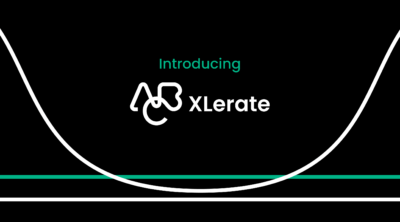A continuation of articles from our Fitness Founders series: Mehdi Elaichouni of Carpe Diem Jiu Jitsu Singapore shares his first-hand experience in how he has personally navigated challenges. He highlights key learnings and actionable takeaways to help new fitness businesses succeed. There are multiple options to get financing for your business, and here, Mehdi shares why he opted for the toughest one.
Like any other business, setting up a gym requires an initial cash input. Therefore, it is important to plan for a cash runway of at least six months, or until your projected break-even point, on top of your initial setup costs. This will allow you to comfortably operate the business without running out of cash or needing to inject more funds mid-way. Financing a gym starts with your setup costs, which can vary from $10,000 to $1,000,000 depending on the type of business, and you can explore funding options such as taking a bank loan, pitching investors, finding a business partner, or funding it yourself.
When I was growing up, my mother would often say to me, “don’t play with people’s money.” What she meant by this is if you have access to someone else’s money, you cannot be irresponsible with it. This advice has stuck with me ever since I thought up my first business concept, and this is why I am a big believer in self-funding until proof of concept.
Skip ahead to:
1. Proving your concept
Having watched Shark Tank for at least ten years, I learned that most businesses that pitch their ideas without healthy sales figures often end up handing over a significant percentage of their business in exchange for funding. Many of them get no funding at all. When you have not proven your concept, your position in any negotiation for outside investment will be weak. Even if you apply for a bank loan, it will be difficult for someone with no prior experience and no proven business to get financing. The bank may approve your loan, but it could be for an amount that is a lot lower than what you need.
On the other hand, funding your business with personal savings is probably the toughest route, but because it is your own money, you will be frugal and think through all costs and spend only on what really makes sense.
Start with essentials
Make a list of the essential items you need to start your gym and group them into must-haves and nice to have. Based on your financial forecast, you may need to leave out the nice to haves initially. Instead, focus on three crucial areas (operations, finances, and retention) to achieve and maintain the profitability of your business.
The Top 10 Barriers
Slowing Your Fitness
Business Growth
Discover more Carpe Diem started in a small studio that could fit just 20 people, but the small space helped to keep operational costs low so we could focus on customer acquisition. In addition, we kept class offerings streamlined and only opened up new classes when the existing schedule was saturated. At this point, you need to focus on activities that lead to or generate sales. For example, we sold Jiu-Jitsu uniforms because new members needed them to join, and selling uniforms added to our sales figures.
Look for alternative revenue streams
Once your primary operations are up and running, look out for previously unseen opportunities to generate more revenue. For example, if you have an equipment-based gym that is open for members to use in their own time, there could be an opportunity to bring in new members by offering guided classes. I started by focusing only on teaching adult Jiu-Jitsu classes in the evenings. We tested morning and afternoon classes, but reception was mild, so we launched kids’ classes in the late afternoons, with just two classes a week. It was a pleasant surprise when the classes quickly gained traction, and we increased the number of kids’ classes from two to seven days a week. For more examples of additional revenue streams for gyms, check out this blog post.
2. Finding a business partner
It is not always possible to have savings that you can use, but if you have skills and expertise and lack funds, finding a business partner can bring in some capital. Entrepreneurship can be lonely, so having a partner to consult with and bounce ideas off along the journey can make it more fulfilling. You should find a partner who can help (not hurt) the business; consider what you’re looking for in a partner to best match your business needs. For example, if you’re opening a boxing gym, a partner with expertise in the sector could bring a wealth of knowledge that supports your niche instead of someone with ‘general business’ knowledge. On the other hand, perhaps you’re happy with your expertise in your chosen modality, and someone with a broader experience would be more beneficial to your needs.
Find someone you get along well with and trust
You will be spending a lot of time together, so having a partner you already get along well with will make tasks like communication and problem solving a lot smoother. In addition, having inbuilt trust in each other helps when conflicts arise.
Shares your vision and values
When you and your partner share the same vision, you can work together towards the same goal. Successful partners with the same values tend to agree on standards on what is good and bad. Values guide our actions, judgments, and choices, so partners with aligned values are more likely to make harmonious decisions together.
Complementary skills and traits
One of my favorite quotes from Canadian entrepreneur Kevin O’Leary is, “to create wealth; I needed to pair up with people whose strengths compensated for my weaknesses.” This is a logical point to consider if you lack certain crucial skills in running a gym.
In summary
It was definitely tough to fund the first Carpe Diem location on our own. However, after three years, we stabilized the business and proved our concept. This put us in an excellent position to bring an investor on board for the second branch, even though we were still amid the COVID pandemic.
Table of contents















